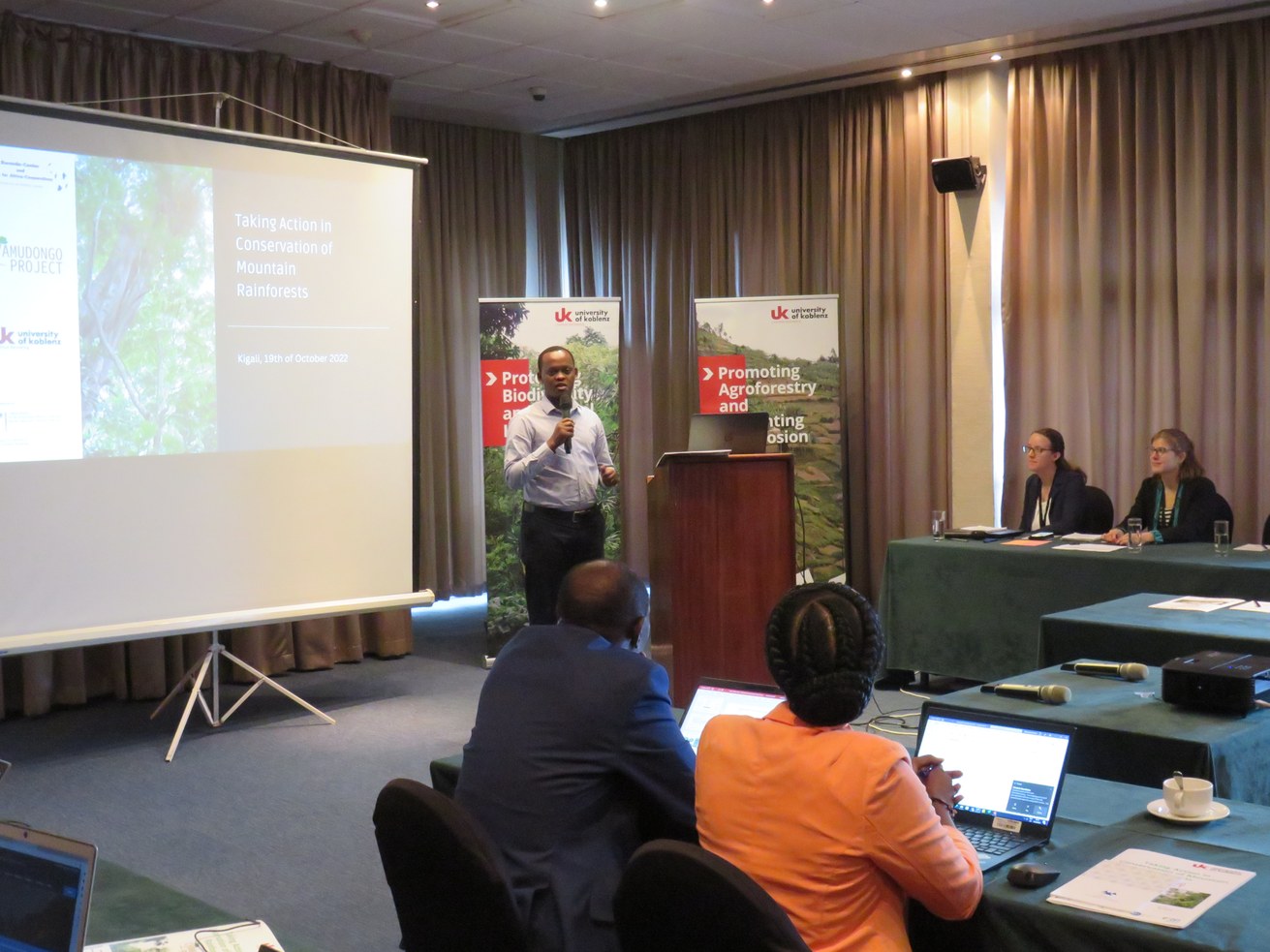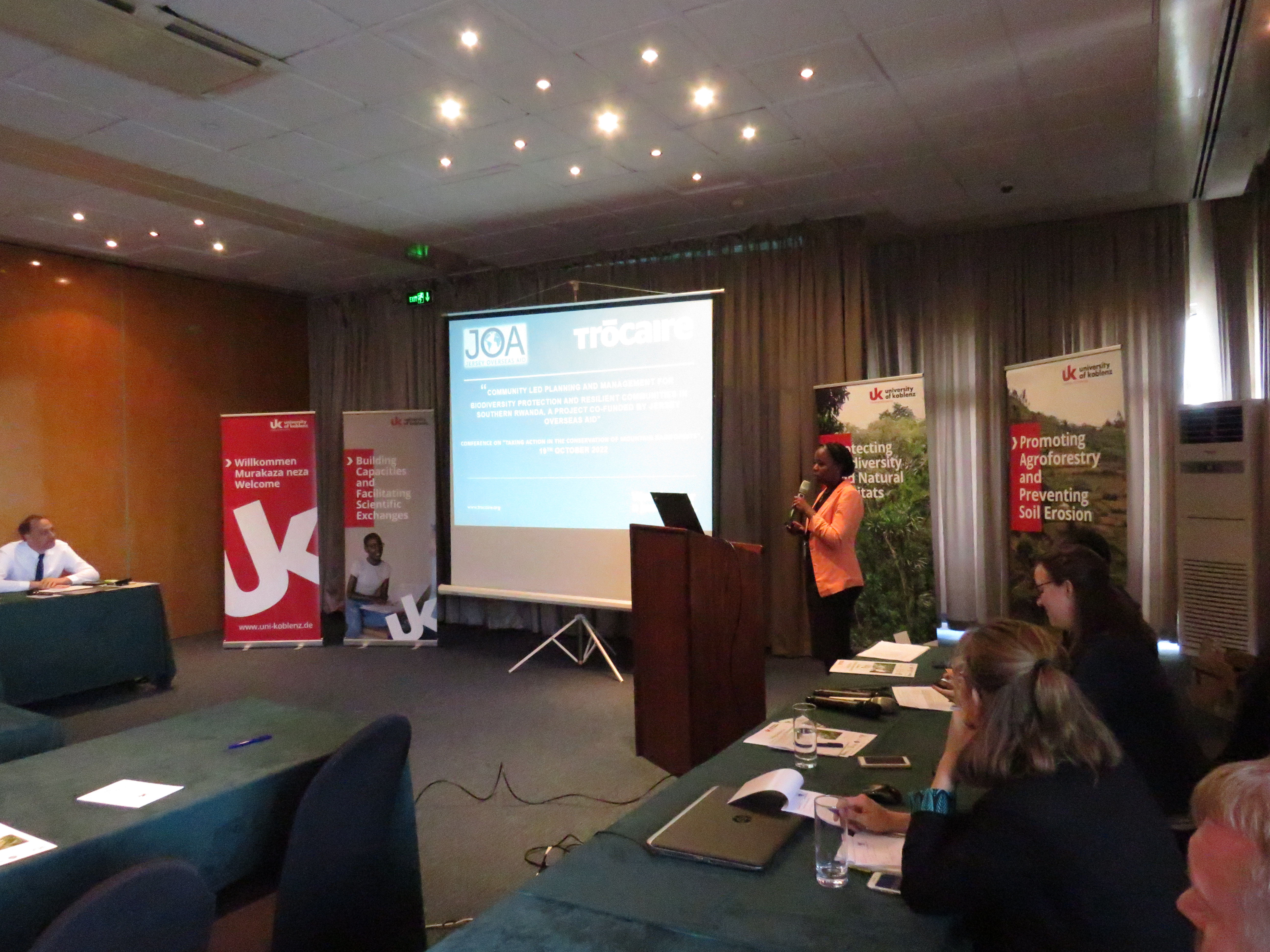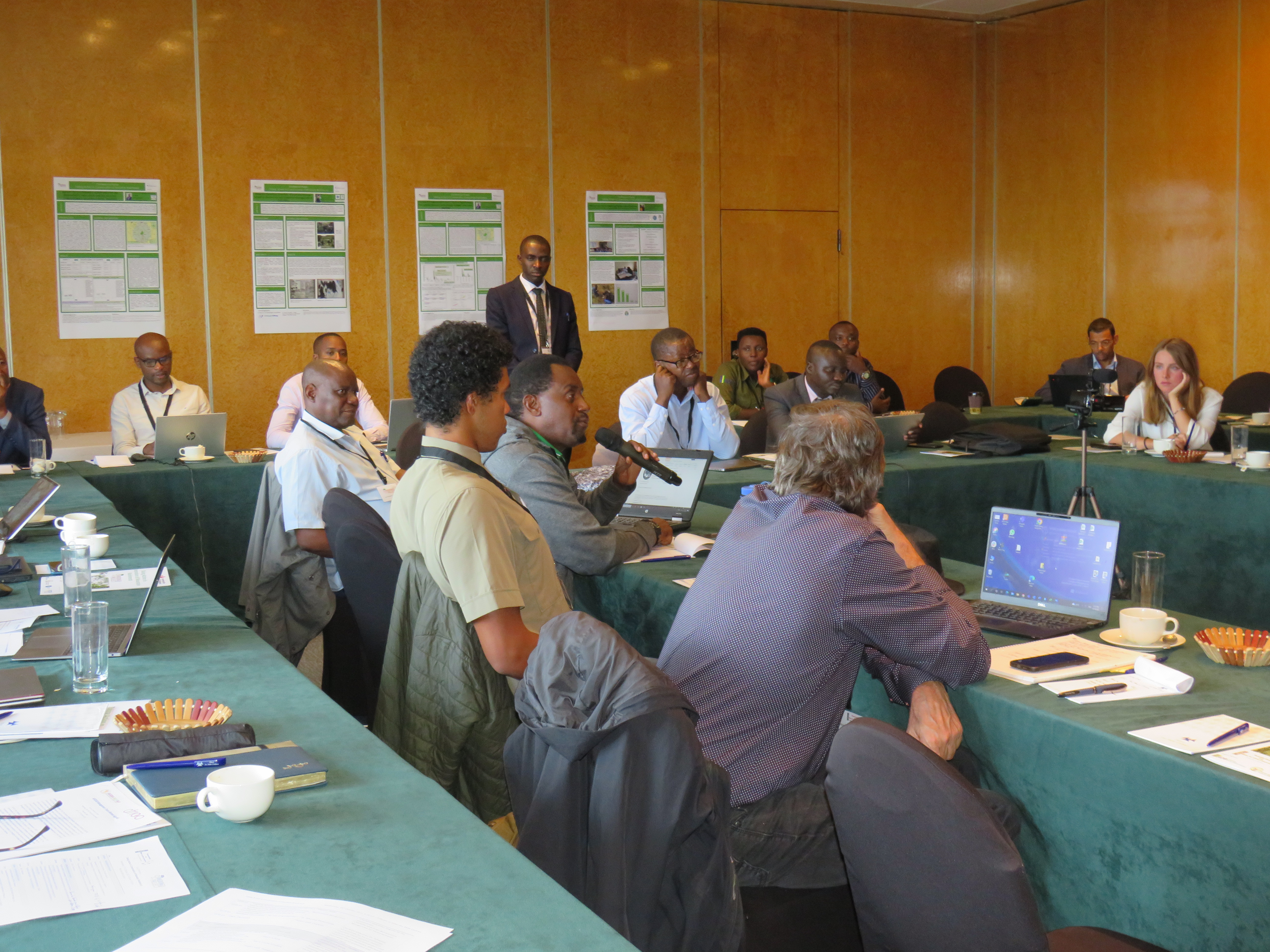Zweite Konferenz zum Thema "Maßnahmen zur Erhaltung der Bergregenwälder"

These and many more questions were discussed during the second conference on “Taking Action in the Conservation of Mountain Rainforests” organized by Cyamudongo-Project of the University of Koblenz on the 19th of October 2022 at Hôtel des Mille Collines in Kigali, Rwanda. More than 40 representatives from various national and international organizations were present, ranging from environmental authorities to universities, research institutes and NGOs. They were welcomed by Dr. Ivan Gasangwa, the Head of the Research Division of the Rwanda Forestry Authority (RFA), one of the main partners of Cyamudongo-Project in Rwanda. He was followed by the Director of the Rwanda Center and Office for Africa-Cooperation, Mr. Siegmar Seidel, who emphasized the importance of conserving rainforests globally and especially in Africa due to their vital role in climate change mitigation.
Diverse topics for a diverse audience
Eight speakers gave insight into their respective fields of work and shared recommendations on how conservation of mountain rainforests should look like in the course of the day. In the morning the participants learned and discussed about why natural habitats such as mountain rainforests are essential for the conservation of rare species and functional diversity, which native tree species are vulnerable to climate change, how capacity-building and environmental education can be used as a tool for conservation, and whether research and sustainable land use systems such as agroforestry support the protection of biodiversity. In the afternoon the discussion revolved around the opportunities arising from the nomination of protected areas as UNESCO World Heritage and participatory land use and conservation action planning with communities.
 Marie Louise Umuhire presented on the community work of the development agency Trócaire. Bild: Chantal Broccard, Universität Koblenz
Marie Louise Umuhire presented on the community work of the development agency Trócaire. Bild: Chantal Broccard, Universität Koblenz
Giving young researchers a platform
Besides offering plenty of possibilities for professional discourse and networking, the conference gave young researchers the opportunity to present their current work in the form of scientific posters. Three posters had been chosen to be presented with short pitches during the conference. In the end, two graduates from the Biology and Conservation program of the University of Rwanda won the first prize with a concise and well-structured overview of their work at the National Herbarium of Rwanda.. To conclude the conference, the participants were invited to collect their main take-home messages and challenges in mountain rainforest conservation. Among others they stressed the sharing of research findings in a coherent way for political and local stakeholders, the lack of involvement of the private sector in conservation and the significance of bottom-up approaches in activity planning and implementation. The conference ended with an informal get-together on the hotel terrace to reflect on the discussions of the day over some drinks and snacks.
 During the final discussion the participants could clear remaining open questions and highlight the most important points of the day
During the final discussion the participants could clear remaining open questions and highlight the most important points of the day


